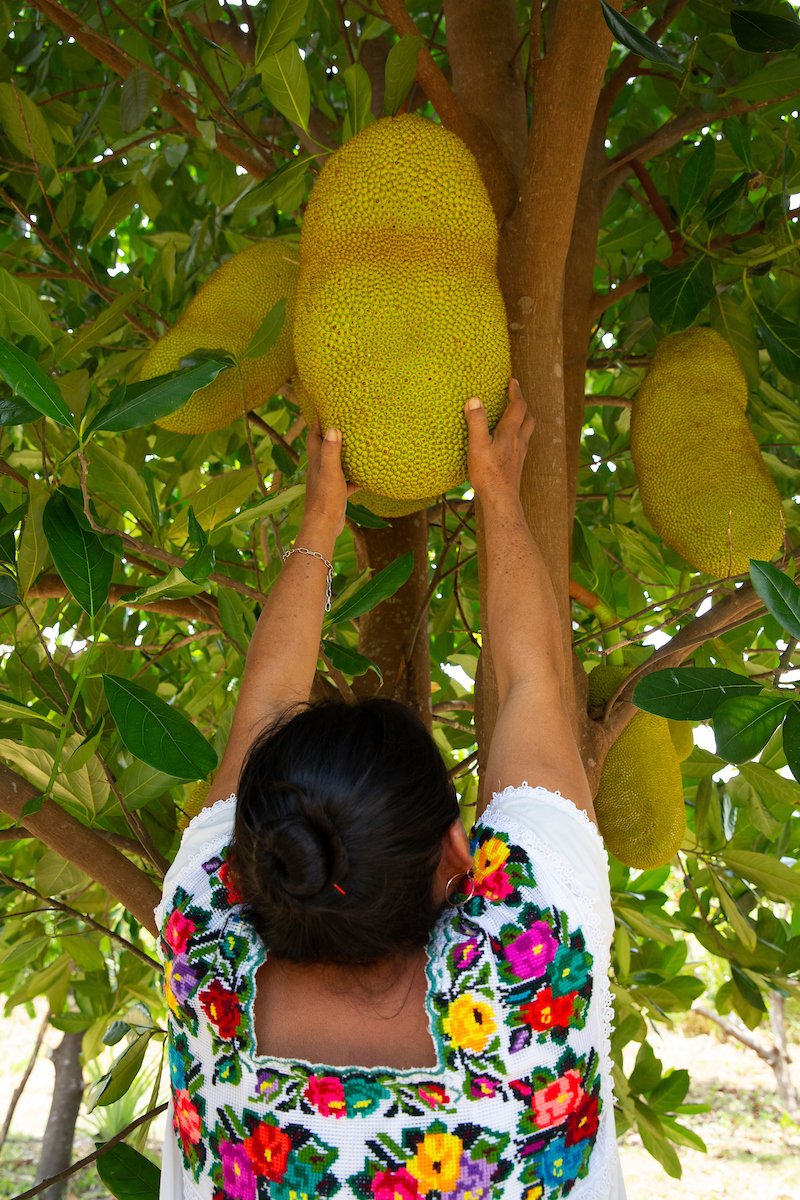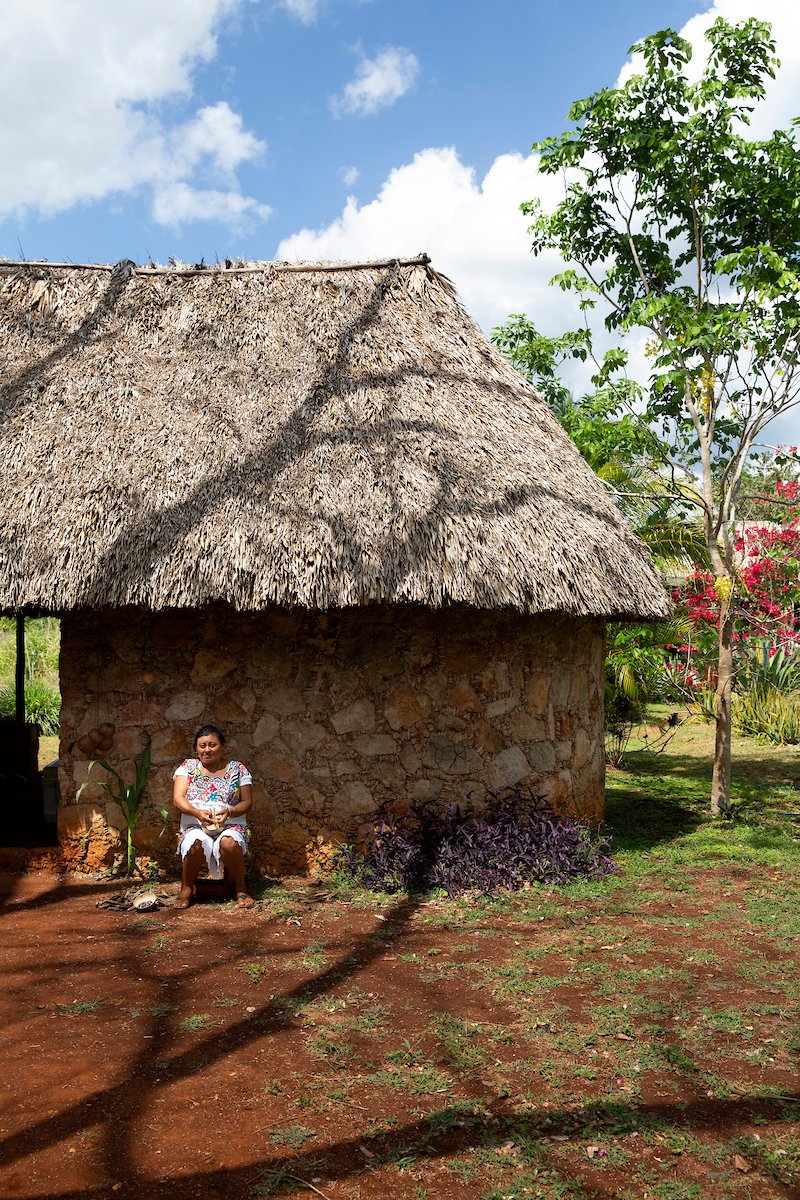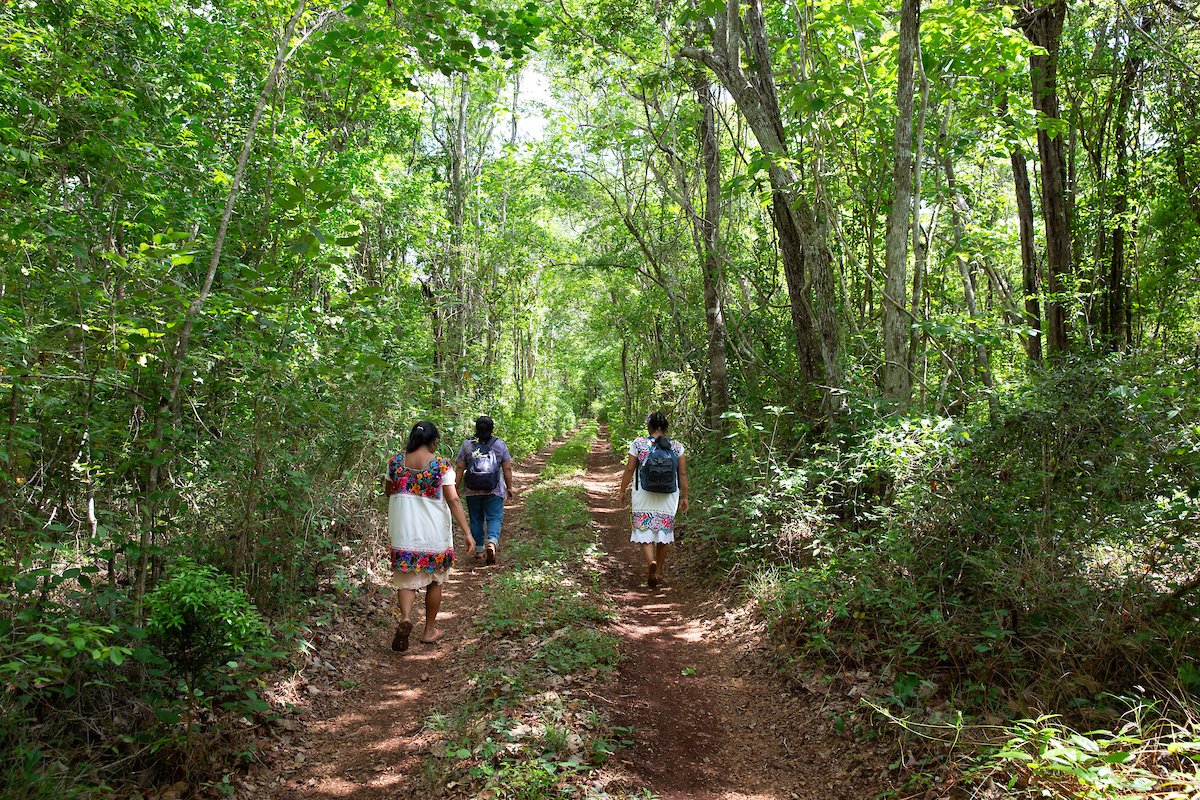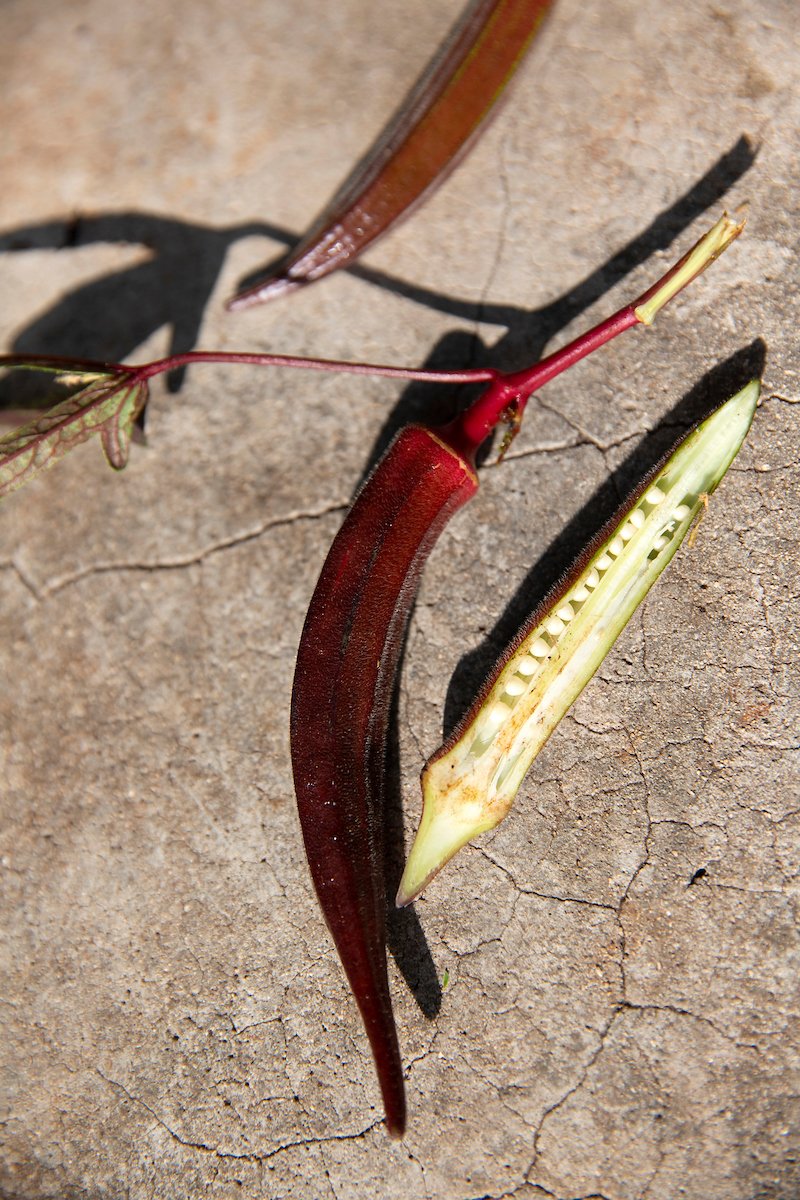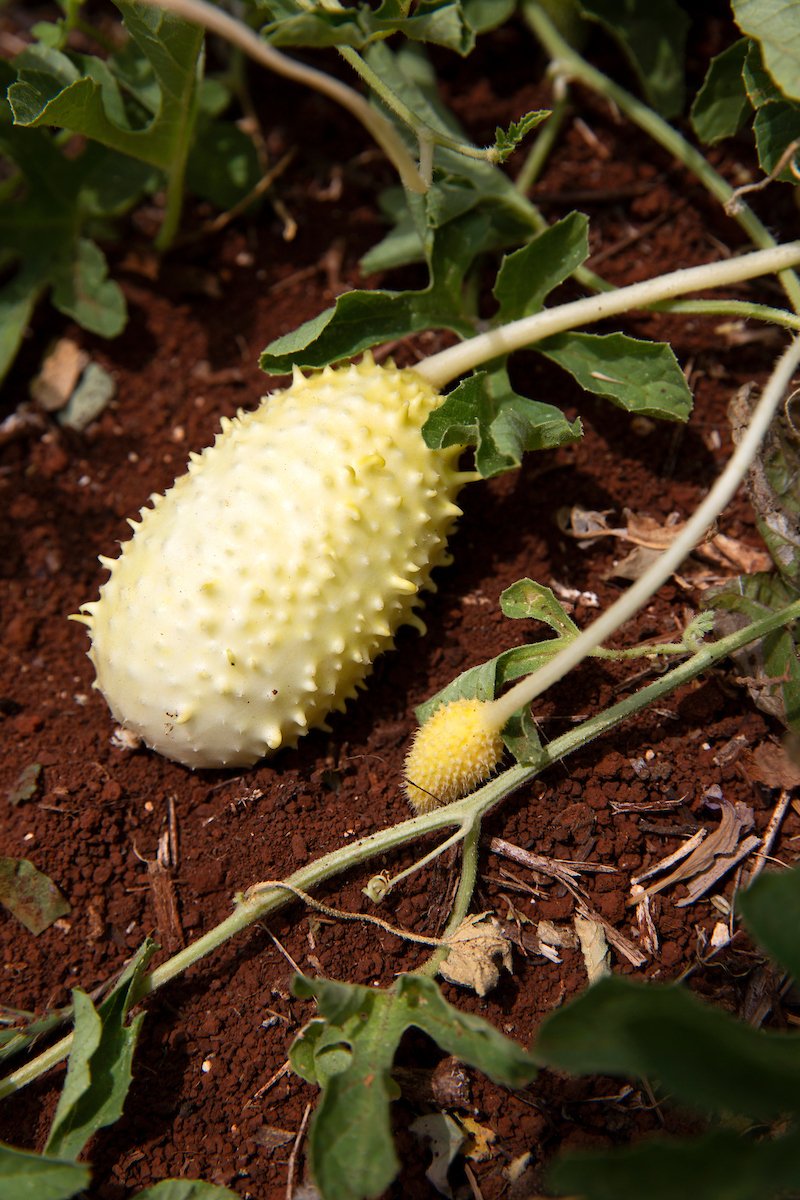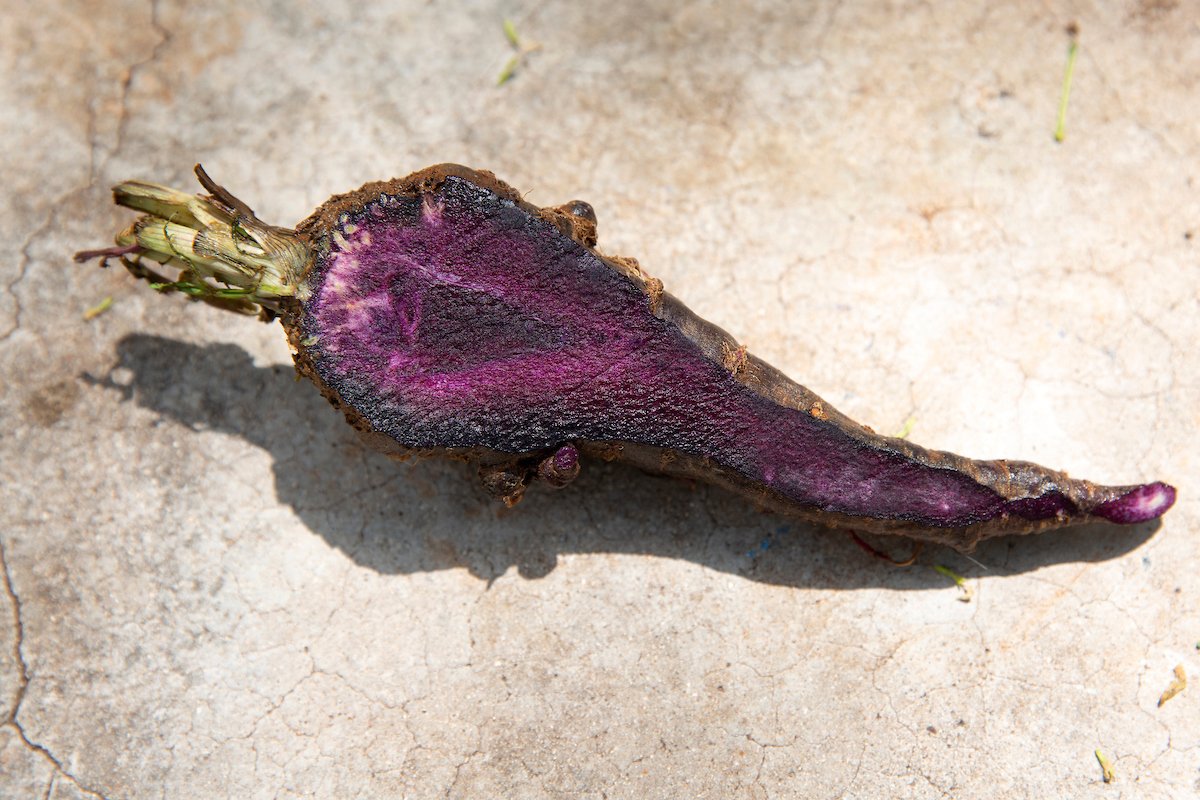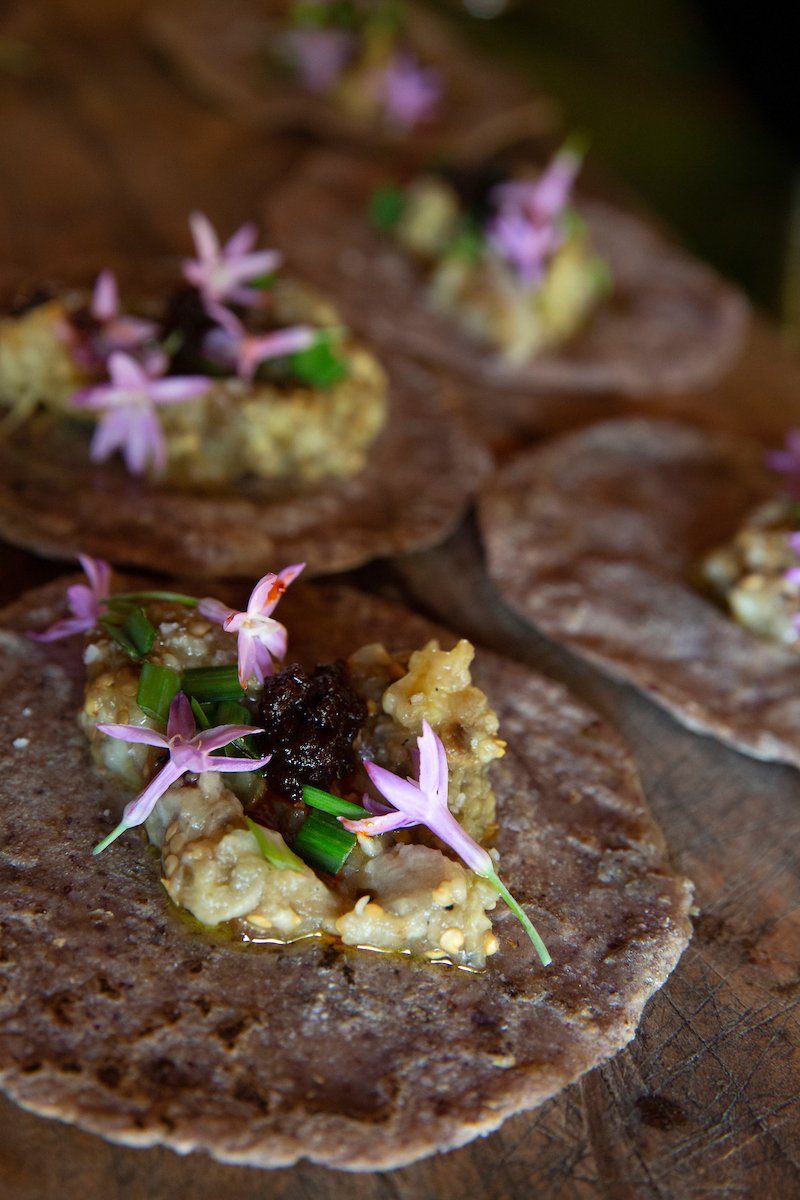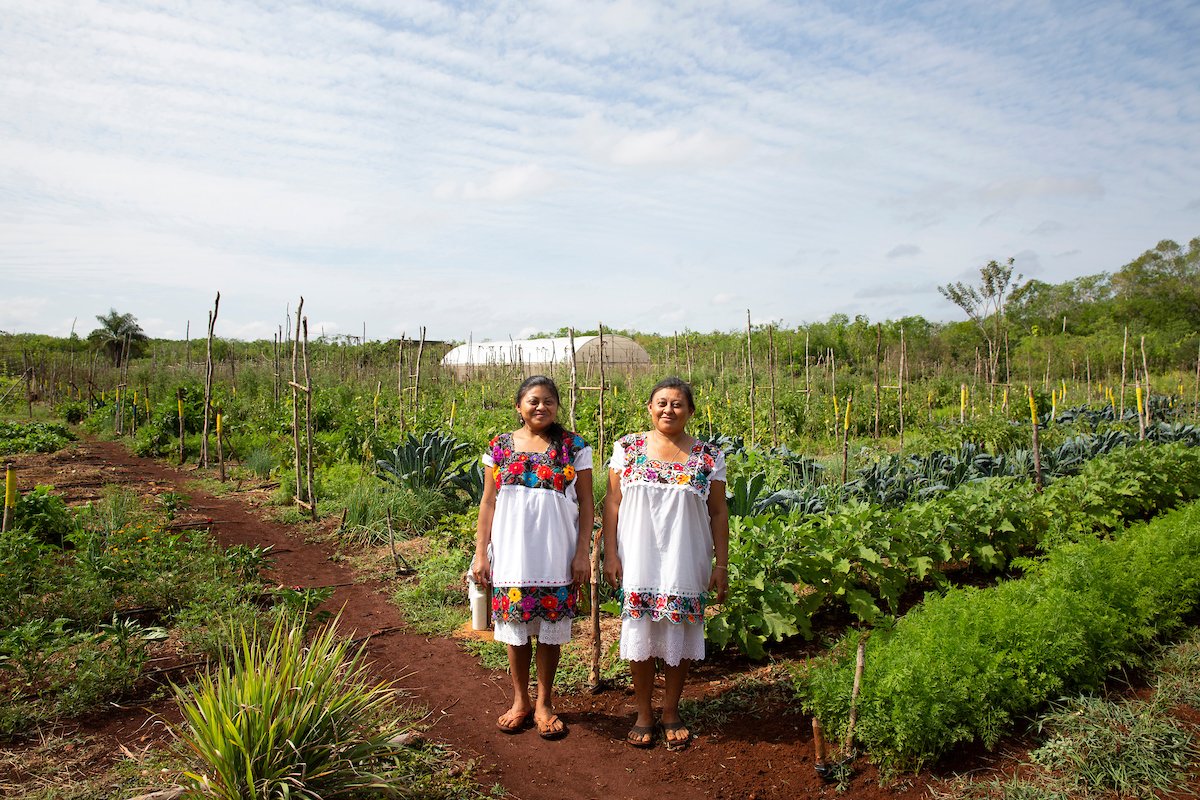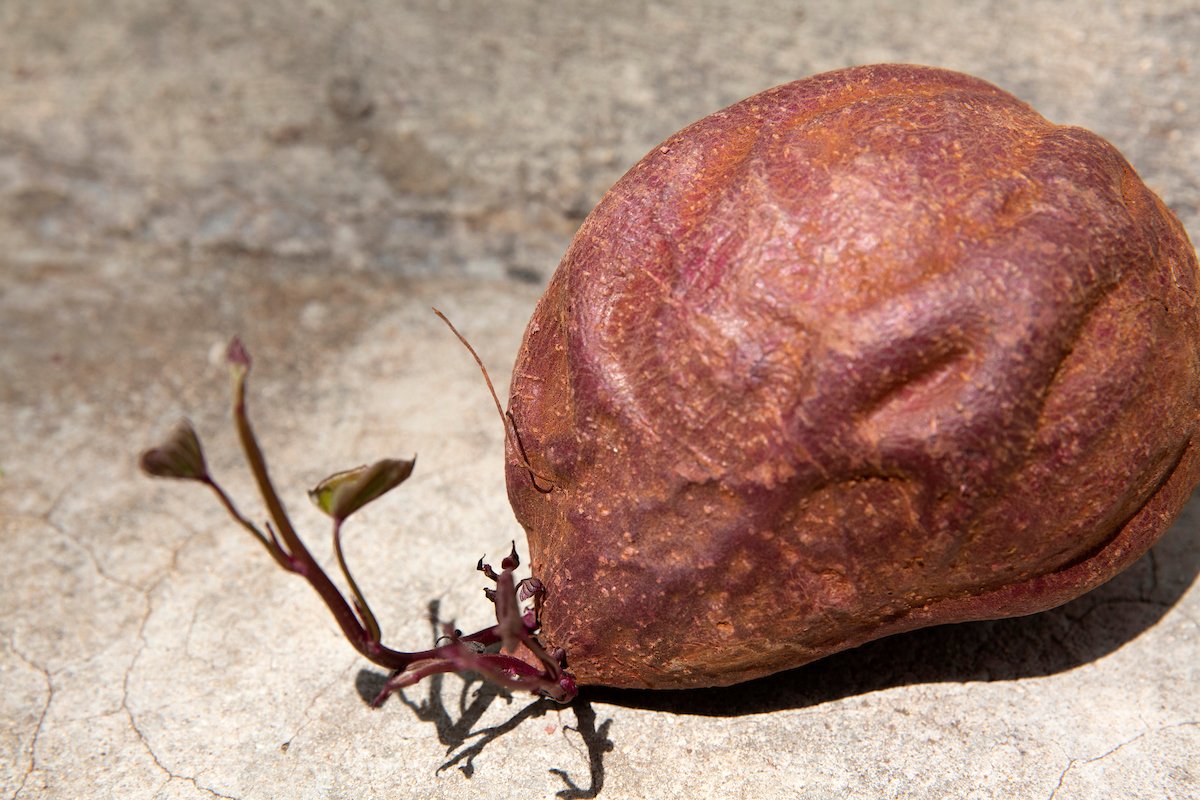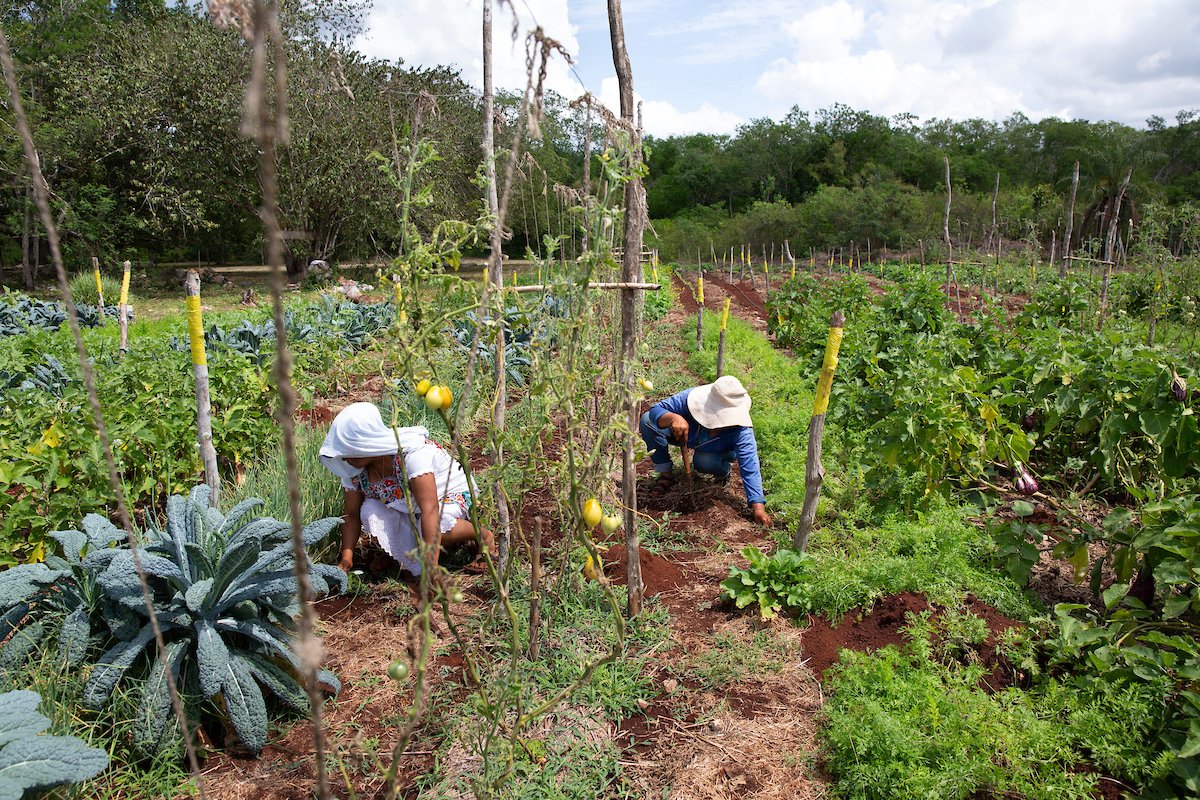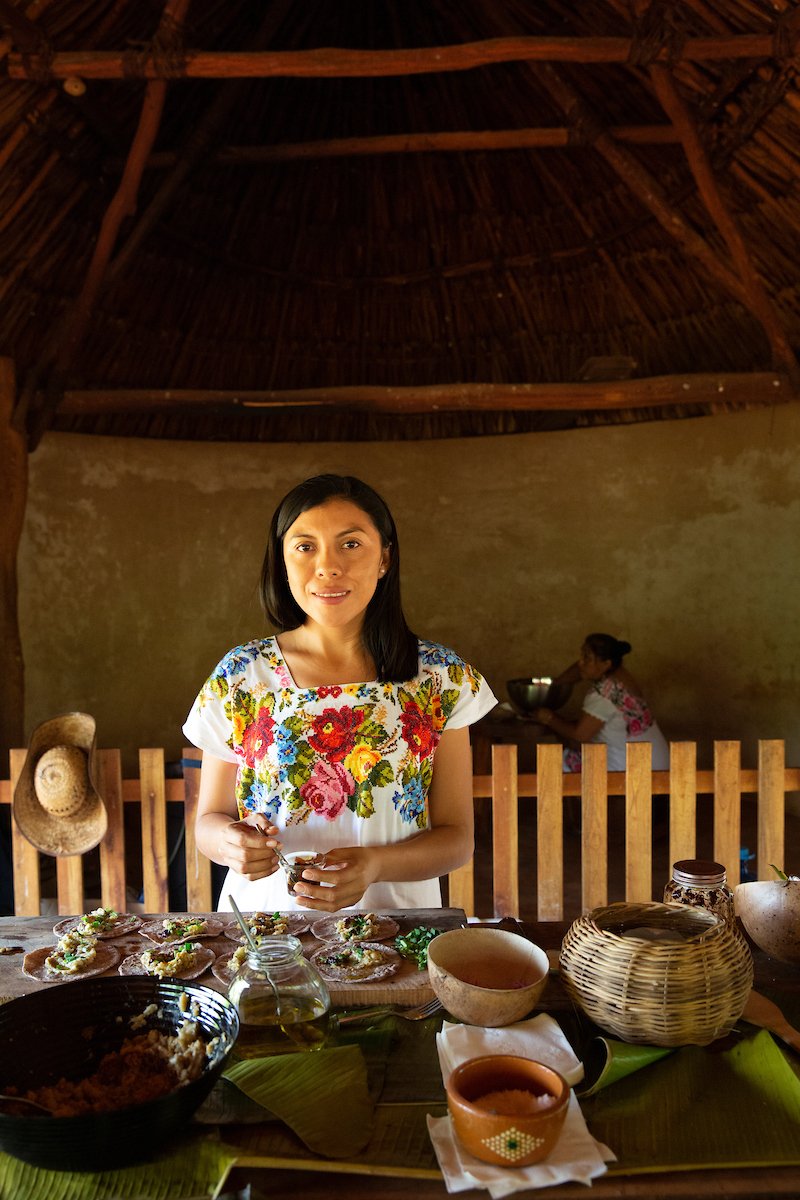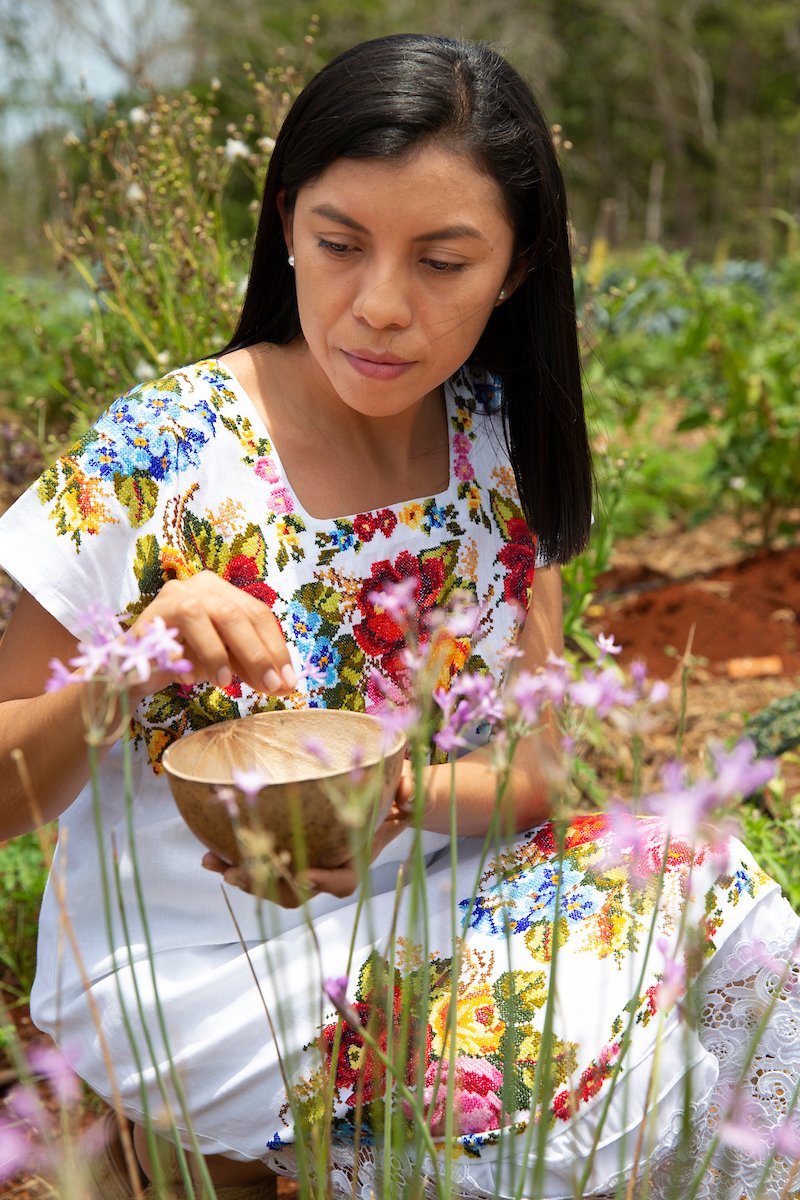Planting The Seeds of Change
Meet the Mayan women empowering themselves through regenerative farming in Mexico’s Yucatan jungle
Words by Imogen Lepere. Images by Bénédicte Desrus
Doña Cecilia Chuc Nahuat and her sister, Maria Isabel Chuc Nahuat, sit at a low table wrapping parcels of maize dough inside peppery hoja santa leaves. It’s so hot the dogs are ignoring their commands – sometimes reinforced by physical shoves – to leave the shade of the xa’anil naj (house made from guano palm) and return to the steaming yard. We are in the Maya village of Espita, deep within the jungle of Mexico’s Yucatan Peninsula and it’s so hot my head pounds.
The weather doesn’t seem to be affecting the sisters however, who are cooking kots’obes (a pre-Hispanic Maya dish) at high speed and cracking jokes as they go.
“Why are you wearing such pretty earrings today?” Maria Isabel asks. “In case I want to find a second and third husband,” Doña Cecilia replies. Although they are aged 62 and 59 respectively and generally hold traditional beliefs around gender – neither wants to work for money as it would involve leaving the house and think womens’ primary duty is to care for their families – they did vote for Espita’s first female mayor, Martha Eugenia Mena Alcocer, who has been in office since 2021.
“I voted for her because she is a woman, of course,” Doña Cecilia leans forward intensely and rubs dough off her fingers. “She keeps her promises.”
Espita is a community caught at a crossroads in time. In 2021, the same year Alcocer was elected, a Women’s Institute opened to provide support for victims of domestic violence. As more and more men leave the village to work in the tourist resorts of the Riviera Maya, women are beginning to take on paid work of their own. Arguably one of the key figures driving the changes is entrepreneur Martha Elena Chan Tuz who co-owns Mestiza de Indias alongside her husband, Spaniard Gonzalo Samaranch.
“Although younger women often leave the village to work in tourism, those in their forties and fifties tend to see women’s place as in the house”
This 220 hectare (540 acre) agricultural project combines ancestral knowledge such as the “Three Sisters” companion planting method – beans act as a natural fertiliser, squash maintains soil humidity and keeps other plants low so the corn can absorb maximum light – with regenerative techniques designed to combat increasingly severe weather conditions. Crucially, it also aims to provide career opportunities for local women. “Although younger women often leave the village to work in tourism, those in their forties and fifties tend to see women’s place as in the house,” says Chan Tuz, pointing out a patchwork of crops that are endemic to the region, her huipil (embroidered tunic) as crisp as snow against the dusty floor.
Depending on the season, Mestiza de Indias employs between six and 15 people. As well as a weekly produce box, they earn 415 pesos a day (double minimum wage) as well as sick pay. Although women are paid the same as men, just three are currently employed by the project largely due to traditional beliefs around farming being mens’ work.
“Sometimes people shout insults at me on my way to work,” says Maria Alba De La Flor Pech, who joined the project soon after divorcing her husband and plays a key role in recruitment. “I don’t care. My daughter dreams of being a lawyer and my wages make that a possibility. I’m currently saving up for a computer so she can continue her studies.”
Later that evening, I stroll through the town’s historic plaza at golden hour. A few stalls are selling coconut flan and fried plantain. Wendy Beatriz Canul Chan is leaning against the doorway of the Women’s Institute catching a breath before what she hopes will be a busy evening. INEGI (the national statistics agency) recently released a report showing that gender-based violence in Mexico has soared in the last five years, with Indigenous women most at risk. However, due to the stigma of admitting that their marriage is far from perfect, many women choose to come after dark.
The farm’s co-owner Martha Elena Chan Tuz preparing a traditional local dish
Shame is not a concept that holds much sway over Canul Chan. At 32, she has already become the first person in her family to finish university, paying for her diploma in cultural education through grants, and going on to study psychology. She has been separated from her husband for three years due to his issues with alcohol, which she says she ‘won’t tolerate’ her children seeing.
“The more people tell me no, the more I want to do something,” she grins, before adding:
“I guess I’m a natural rebel and I definitely have a cause. There’s a contagious thing in the town. When one woman changes her situation, the others realise they can too.”
Follow @mestizadeindiass to keep up with their vibrant community.


